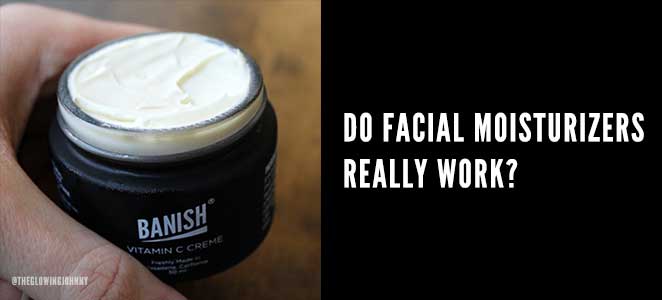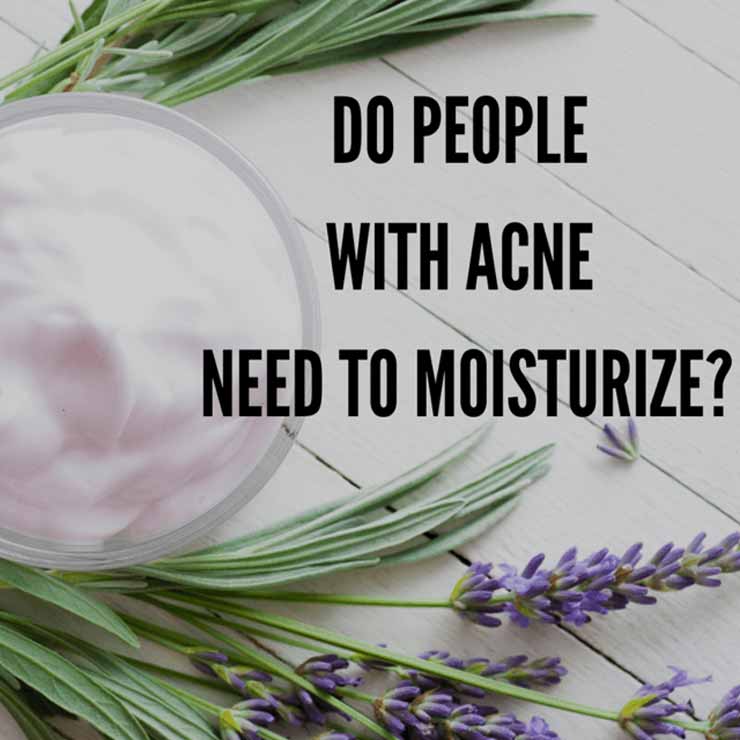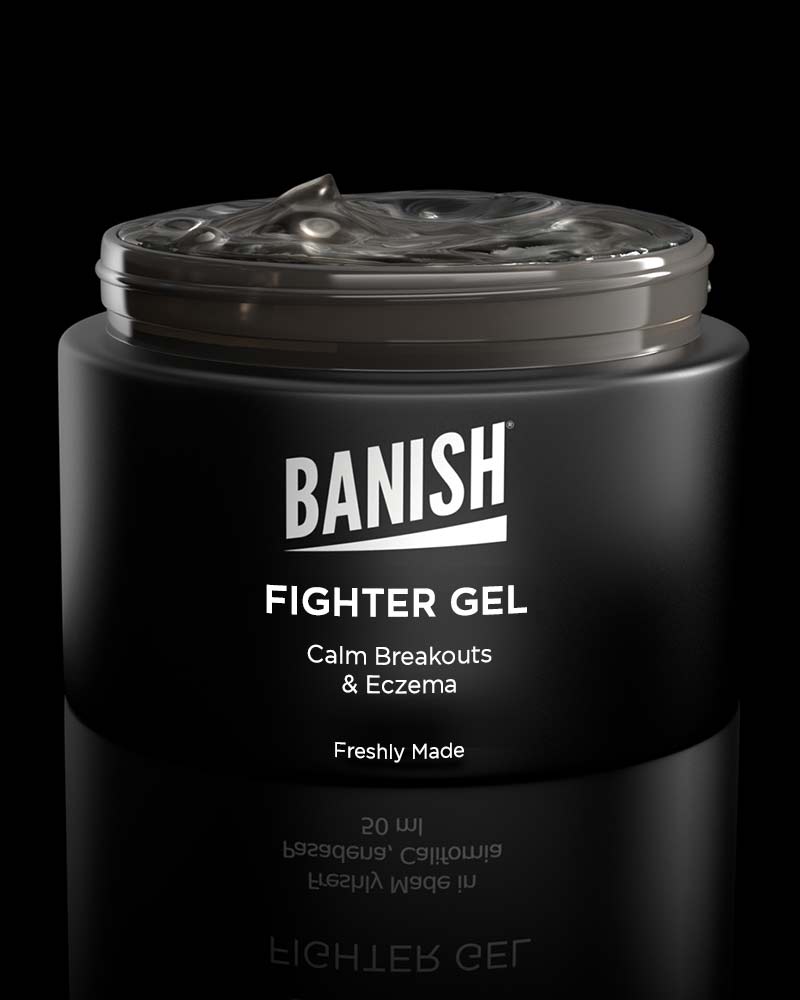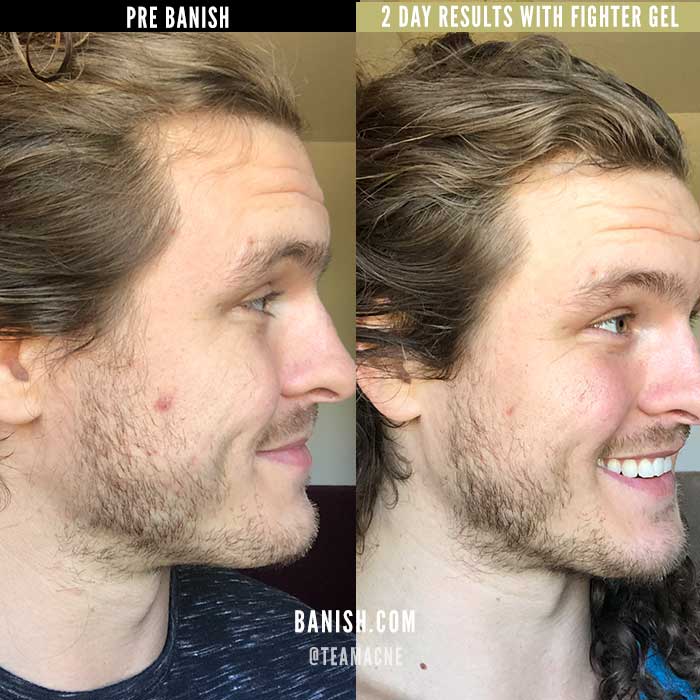Often, the responsibilities we take on as adults are quiet. No one talks about what trash can is best, how to file taxes correctly, or whether you should use 500 or 1,000-count bedsheets, but these are all decisions that we have to make at some point in our adult lives. We are left haggling with ourselves between price and amenity, trying to decipher what is really beneficial and what is just marketing.
One of the questions that no one ever talks about is facial moisturizers. Sure, you might remember your mom’s old skincare routine, but is it the best choice for your skin? Do facial moisturizers really work, or should you spend your money elsewhere?
If you are asking yourself, “do facial moisturizers really work?” then it’s time to upgrade your skincare routine. Any facial moisturizer will help heal your skin and lock in the right amount of moisture. It’s the type of facial moisturizer that you should be spending your time choosing between. Is there a difference between drugstore brands and luxury serums and creams? What’s the difference between all these terms, anyway?
So, the question is, do facial moisturizers really work for all skin types, or should you avoid these “all-type” creams and stick with moisturizers recommended by your dermatologist?
The short answer is, stick with what’s recommended for your skin type. Every skin type is different, so it’s important to find what works best for you. What works for siblings, parents, and significant others might be different from the care that your skin needs.
If you are ever uncertain about what skin type you have or if you are having trouble with poor reactions to skin products, consult a dermatologist about your specific skin problems.
Banish is the leading skincare solution for acne-prone skin that uses fresh, natural ingredients while keeping everything sulfate, parabens, and synthetic fragrance free. Banish offers worldwide shipping and recyclable packaging as a part of the small batch skincare promise. All skincare products are plant-based and cruelty free, leaving your skincare routine guilt-free.
What Would Happen if You Never Moisturized Your Face?
“Do facial moisturizers really work?” Anyone who has gone years without a good facial moisturizer will tell you, “YES!” and it’s never too early to start working in a great new facial moisturizer to prevent future wrinkles and other symptoms of dehydrated skin. (1)
“Get in the habit of using face creams in your mid to late 20s. It’s a good idea to use one cream during the day and another at night. You’ll also want to be sure that you choose the right product for your skin type. If you’re not sure what your skin type is, start by asking your dermatologist.”
If you never moisturize your face, you will notice over the years that wrinkles get deeper as your skin gets dehydrated. As you age, the ceramides and other natural compounds in your skin – the ones that keep in moisture – break down. This leaves your skin’s natural barrier weakened and your skin exposed to all the environmental toxins around you.
Those with oily skin might be doing themselves a disservice by avoiding the facial moisturizer. It is a long-purported myth that those with oily skin shouldn’t moisturize. This, combined with frequent face washing to prevent the oily or greasy look can lead to premature aging of the skin as it cycles through periods of oil production and extreme dryness, leaving the skin exposed to environmental toxins. Oil-free moisturizers will help you control the amount of moisture your skin produces and keep your skin feeling lighter and healthier, preventing breakouts and greasiness.
Individuals with dry skin might be suffering from an underproduction of sebum, which is the skin’s natural oil. Of course, certain environmental conditions, such as dry air, extremely hot or cold temperatures can exacerbate the issue. Healing facial moisturizers can help supply the skin with natural oils that it might not produce otherwise.
With the right facial moisturizer and skincare routine, you will have smoother, younger skin that is healthier and free from breakouts.
How to Moisturize Your Face the Right Way for Healthy, Glowing Skin
There are plenty of myths and truths associated with facial moisturizer. These do’s and don’ts can be intimidating for someone who wants a low-maintenance skincare routine or gets caught up in the details, so let’s demystify the “right” way to apply facial moisturizer if you want healthy, glowing skin.
It’s important to find the product that’s right for your skin type, not just a generic “all-type” brand. Finding the right skincare products is an individual journey, but your dermatologist can help guide you towards the right ingredients!
It’s easy to skip the patch test, but it can help you avoid an allergic reaction if you have sensitive skin. Apply a small amount to your inner arm, where the skin is thinnest, and wait a day or two to see if you notice any redness, swelling, or itching. If not, you can try it on your face!
Facial moisturizer should always be applied to clean, damp skin. Damp skin will absorb the moisturizer easier and gives your skin a chance to lock in all that wonderful moisture. Try applying facial moisturizer right after you wash your face, or after getting out of the shower.
If you have a multi-tiered skincare routine, layering can be important. Start with the lightest and work up to the thickest creams and products in your toolbelt. For example, washing always comes first, then apply any medicine, then serum, then moisturizer, then sunscreen.
While it’s not crucial to keep your day and night creams separate, day creams typically have SPF sun protection and keep your skin healthy and glowing throughout the day, and night creams are built to provide more moisture and provide nutrients to help your aid your skin as it repairs itself overnight.
What to Look for in a Facial Moisturizer
When you first go looking for a facial moisturizer, it’s important to know what to look for. If you buy ineffective moisturizers without knowing what your skin type is and what you need out of a moisturizer, then you will be asking yourself, “do facial moisturizers really work, or am I wasting my money?”
It can be difficult to determine what your skin needs. There are so many facial moisturizers that are on the market that it is overwhelming to choose just one, and without the help of a dermatologist, you might discover you have sensitive skin through trial and error. Many buyers trying out facial moisturizers for the first time have negative reactions to harsh chemicals or scents because of sensitive skin that requires an extra bit of care.
The world of facial moisturizers is filled with oils, with salesmen telling us that they’ll help you get glowing healthy skin, but fail to tell users with oily skin that they need something to remove the excess oil, not add more on top. Furthermore, dry skin may be a chronic condition, or it can be a symptom of the environment. (2)
Beyond that, the prices and types of moisturizers that are on the market can have you buying into marketing schemes left and right. You might not realize that the lower price brand might provide more of what your skin needs after spending hundreds of dollars on a luxury brand name. Other times, you might discover an inexpensive household brand that causes breakouts and keeps your skin feeling oily and unhealthy!
“The good news is that despite all the unknowns and salesmanship, you really can't go very wrong with what moisturizer you choose.”
Knowing what to look for and how to take care of your skin is one of the best things you can do for your body. Taking care of your skin is a form of self-care, and you deserve healthy, glowing skin for years to come.
Fortunately, there are a couple of tips that will keep you on the right track and help you find a facial moisturizer that really does work.
Use a Moisturizer That is Right for Your Skin Type
Everyone has different skin. It can be a struggle to find the right moisturizer for your skin type, but you can tell whether you have sensitive or dry skin without subjecting it to harsh chemicals and scents that clog your pores.
If you have sensitive or dry skin, you should look for ceramides, glycerin, and lactic acid in your facial moisturizers.
Ceramides are natural proteins in the outer layer of your skin that help keep moisture in and protect the skin from toxins in the environment around your face. Older or more sensitive skin tends to have less ceramides present in those outer layers, making this a must-have for individuals looking to repair their skin health.
Glycerin is a natural moisturizer that repairs skin and helps keep moisture in with the help of ceramides, and lactic acid is a natural exfoliant that removes the outer layer of dead skin cells and allows your moisturizer to better penetrate the skin.
Likewise, if you have dry skin, avoid ingredients that might be drying, such as alcohols and alcohol-based fragrances. Fragrances are also known to irritate sensitive skin, so try looking for a facial cream that is unscented or does not contain any fragrances in the ingredients label.
If you have sensitive skin, you should avoid retinoic acid, methylparabens, parabens, or salicylic acid. Salicylic acid is great for exfoliating skin, but it can irritate particularly sensitive skin. Parabens and methylparabens are cosmetics preservatives that block your pores and are known to cause allergic reactions. Retinoic acid is an anti-aging compound that can irritate skin in much the same way salicylic acid can.
Looking at the ingredients label and knowing how to read it is the best advantage you have in finding the right facial moisturizer for your skin type.
References:
- Melissa Piliang, MD, Q&A: What to Look for in a Facial Cream, https://health.clevelandclinic.org/day-or-night-what-to-look-for-in-a-facial-cream/
- Harvard Health Letter, Moisturizers: Do They Work?, https://www.health.harvard.edu/staying-healthy/moisturizers-do-they-work


























Leave a comment
All comments are moderated before being published.
This site is protected by hCaptcha and the hCaptcha Privacy Policy and Terms of Service apply.